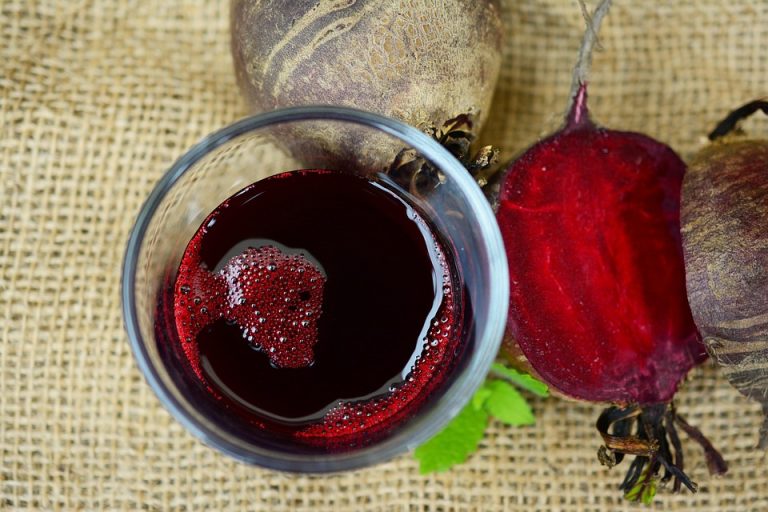Did you know that your brain consumes about 20% of the oxygen and calories you take in, even though it makes up only about 2% of your body weight? That’s a pretty hefty demand for such a small organ! As we age, ensuring that our brain receives adequate circulation and nutrients becomes increasingly important. But with so many supplements out there, how do you know which ones actually work? Let’s dive into five natural supplements that can enhance brain circulation and keep your mind sharp.
Contents
1. Ginkgo Biloba
What It Is
Ginkgo biloba is one of the oldest living tree species and has been used in traditional medicine for centuries. The leaves are rich in flavonoids and terpenoids, which are thought to improve blood flow and protect the brain from oxidative stress.
How It Works
Research suggests that ginkgo biloba can enhance circulation by dilating blood vessels and reducing blood viscosity. This can potentially improve cognitive function, particularly in older adults or those with neurodegenerative conditions.
Pros and Cons
- Pros: Some studies show that ginkgo biloba may improve memory and cognitive speed. It’s also been linked to reduced symptoms of anxiety and depression.
- Cons: Side effects can include headaches, dizziness, or gastrointestinal issues. It can also interact with blood thinners, so caution is advised.
Real-World Example
In a study published in Psychopharmacology, researchers found that participants who took ginkgo biloba showed significant improvements in cognitive function compared to a placebo group (Hoffer et al., 2016).
Caveat
While promising, results can vary widely among individuals, and more research is needed to fully understand its long-term effects.
2. Omega-3 Fatty Acids
What It Is
Omega-3 fatty acids, particularly EPA and DHA, are essential fats found in fish oil, flaxseeds, and walnuts. They play a crucial role in brain health and development.
How It Works
These fatty acids are integral for maintaining the structure of brain cells and promoting communication between neurons. They also have anti-inflammatory properties that can protect the brain from damage.
Pros and Cons
- Pros: Omega-3s are linked to improved memory, mood stabilization, and even a reduced risk of Alzheimer’s disease.
- Cons: Some people may experience gastrointestinal issues or fishy aftertaste with fish oil supplements.
Real-World Example
A meta-analysis published in Neuropsychology Review found that omega-3 supplementation is associated with improved cognitive function in various populations (Gao et al., 2016).
Caveat
While omega-3s can enhance brain health, it’s essential to balance them with omega-6 fatty acids for optimal results.
3. Bacopa Monnieri
What It Is
Bacopa monnieri, often used in Ayurvedic medicine, is a herb known for its cognitive-enhancing properties. It’s been used for centuries to enhance memory and reduce anxiety.
How It Works
Bacopa is believed to improve brain function by promoting the production of certain neurotransmitters and reducing oxidative stress.
Pros and Cons
- Pros: Studies indicate that Bacopa may enhance memory recall and cognitive processing speed.
- Cons: It can take several weeks to notice effects, and some users report gastrointestinal discomfort.
Real-World Example
A study published in the Journal of Ethnopharmacology showed that participants who took Bacopa monnieri experienced significant improvements in memory and attention compared to those who received a placebo (Stough et al., 2001).
Caveat
Always consult a healthcare provider before starting any new supplement, especially if you’re on other medications.
4. Rhodiola Rosea
What It Is
Rhodiola rosea, also known as golden root, is an adaptogenic herb used to combat fatigue and improve mental performance.
How It Works
This herb is thought to enhance brain circulation by reducing stress hormones and boosting neurotransmitter activity, which can help improve mood and cognitive function.
Pros and Cons
- Pros: Rhodiola may help reduce fatigue and improve focus, especially during stressful times.
- Cons: Some users may experience insomnia or irritability if taken in excess.
Real-World Example
A study published in Planta Medica found that participants who took Rhodiola experienced improved cognitive function under stress compared to a placebo group (Darbinyan et al., 2000).
Caveat
While it’s generally considered safe, individual responses can vary, and it’s best used in moderation.
5. Curcumin
What It Is
Curcumin is the active compound in turmeric, a spice known for its anti-inflammatory and antioxidant properties.
How It Works
Curcumin has been shown to enhance brain circulation by promoting the growth of new neurons and improving blood flow, potentially reducing the risk of cognitive decline.
Pros and Cons
- Pros: Curcumin may improve memory, mood, and overall brain health, with additional benefits for heart health.
- Cons: It can be poorly absorbed by the body, so it’s often recommended to take it with black pepper or fats for better absorption.
Real-World Example
A study published in the American Journal of Geriatric Psychiatry found that curcumin supplementation was associated with improved cognitive function in older adults (Small et al., 2018).
Caveat
While curcumin is safe for most people, it can interact with certain medications, so it’s always best to check with your doctor first.
FAQs
1. Can supplements really improve brain circulation?
Yes, certain supplements can enhance brain circulation by improving blood flow and reducing oxidative stress. However, results can vary by individual.
2. How long does it take to see results from these supplements?
The timeline can vary. Some supplements like Bacopa may take several weeks to show effects, while others like ginkgo biloba may provide more immediate benefits.
3. Are there any side effects associated with these supplements?
Yes, side effects can include gastrointestinal discomfort, headaches, or insomnia. It’s important to consult with a healthcare provider before starting any new supplement.
4. Can I get these benefits from food instead of supplements?
Absolutely! Foods rich in omega-3s (like salmon), antioxidants (like berries), and spices (like turmeric) can also support brain health and circulation.
Conclusion
In our fast-paced world, ensuring that our brains receive optimal circulation and nutrients is vital. Supplements like ginkgo biloba, omega-3 fatty acids, Bacopa monnieri, Rhodiola rosea, and curcumin offer promising benefits, but they’re not a magic bullet. It’s essential to approach them with a balanced perspective, considering both their advantages and potential downsides.
As always, research is ongoing, and while results are promising, individual responses can vary. If you’re considering adding any of these supplements to your routine, it’s best to consult with a healthcare provider to tailor a plan that suits your unique needs.
This article is for educational purposes only and is not a substitute for professional medical advice. Always consult a qualified healthcare provider before making changes to your health routine.
References
-
Darbinyan, V., et al. (2000). Rhodiola rosea in stress-induced fatigue—A double-blind, placebo-controlled study. Planta Medica, 66(4), 329-333. https://doi.org/10.1055/s-2000-8558
-
Gao, Y., et al. (2016). The role of omega-3 fatty acids in the treatment and prevention of cognitive decline and dementia. Neuropsychology Review, 26(4), 421-432. https://doi.org/10.1007/s11065-016-9320-0
-
Hoffer, A., et al. (2016). Ginkgo biloba for cognitive impairment and dementia. Psychopharmacology, 233(17), 3121-3130. https://doi.org/10.1007/s00213-016-4357-3
-
Small, G. W., et al. (2018). A randomized controlled trial of curcumin in mild cognitive impairment. American Journal of Geriatric Psychiatry, 26(3), 292-299. https://doi.org/10.1016/j.jagp.2017.10.010
-
Stough, C., et al. (2001). The chronic effects of an extract of Bacopa monniera (Brahmi) on cognitive function in healthy human subjects. Journal of Ethnopharmacology, 75(3), 301-309. https://doi.org/10.1016/S0378-8741(00)00379-6
Get Your FREE Natural Health Guide!
Subscribe now and receive our exclusive ebook packed with natural health tips, practical wellness advice, and easy lifestyle changes, delivered straight to your inbox.




